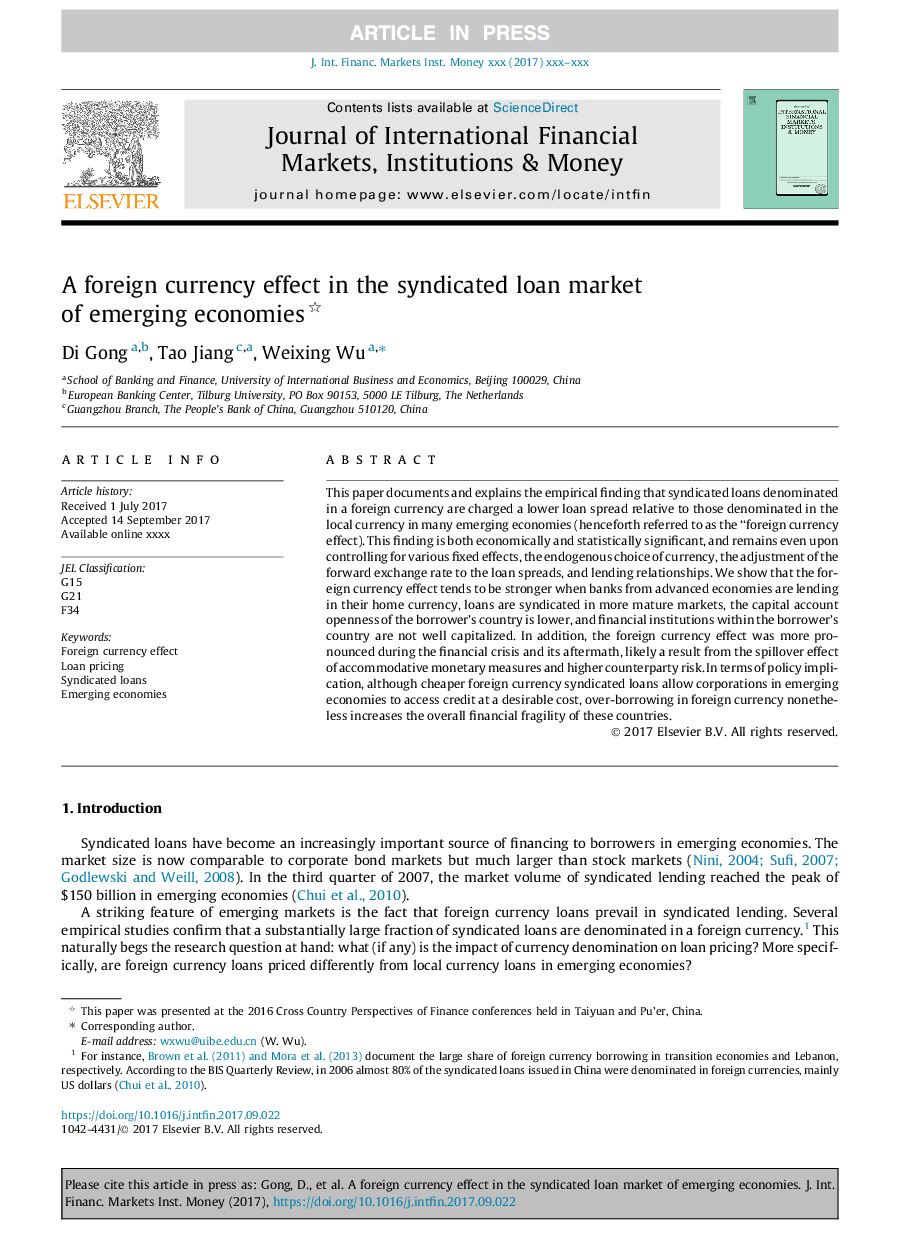| Article ID | Journal | Published Year | Pages | File Type |
|---|---|---|---|---|
| 7364357 | Journal of International Financial Markets, Institutions and Money | 2018 | 16 Pages |
Abstract
This paper documents and explains the empirical finding that syndicated loans denominated in a foreign currency are charged a lower loan spread relative to those denominated in the local currency in many emerging economies (henceforth referred to as the “foreign currency effect). This finding is both economically and statistically significant, and remains even upon controlling for various fixed effects, the endogenous choice of currency, the adjustment of the forward exchange rate to the loan spreads, and lending relationships. We show that the foreign currency effect tends to be stronger when banks from advanced economies are lending in their home currency, loans are syndicated in more mature markets, the capital account openness of the borrower's country is lower, and financial institutions within the borrower's country are not well capitalized. In addition, the foreign currency effect was more pronounced during the financial crisis and its aftermath, likely a result from the spillover effect of accommodative monetary measures and higher counterparty risk. In terms of policy implication, although cheaper foreign currency syndicated loans allow corporations in emerging economies to access credit at a desirable cost, over-borrowing in foreign currency nonetheless increases the overall financial fragility of these countries.
Related Topics
Social Sciences and Humanities
Economics, Econometrics and Finance
Economics and Econometrics
Authors
Di Gong, Tao Jiang, Weixing Wu,
